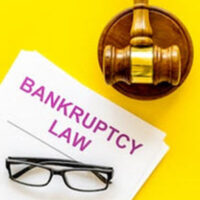What You Should Know About Bankruptcy Discharges

What is a bankruptcy discharge and what do you need to know about them? According to the United States Courts, a bankruptcy discharge in general “releases the debtor from personal liability for certain specified types of debts,” which means that “the debtor is no longer legally required to pay any debts that are discharged.” Yet discharges are different depending upon the type of bankruptcy you file for, and some types of bankruptcy cases do not result in discharges. Our West Palm Beach bankruptcy attorneys can give you more information about discharges and how they work in various bankruptcy cases.
How a Bankruptcy Discharge Works
Once debt is discharged, the debtor is no longer responsible to pay the debt. In addition to the fact that the debtor is no longer responsible for the debt, the debtor is also protected from attempts by creditors or debt collectors to collect on the debt. Indeed, as the United States Courts clarifies, the “discharge is a permanent order prohibiting the creditors of the debtor from taking any form of collection action on discharged debts, including legal action and communications with the debtor, such as telephone calls, letters, and personal contacts.”
There are some exceptions or limitations to the discharge. For example, if a debtor has a co-signer, the debtor receiving a discharge will not wipe out the debt for a co-signer. After a bankruptcy discharge, the co-signer will still be responsible for the debt unless the debtor reaffirms the debt. In addition, some types of debts are not dischargeable, which we will explain in more detail below.
When is Debt Discharged?
The point at which the debt is discharged will depend upon the type of bankruptcy case. In a Chapter 7 bankruptcy case for an individual, the discharge will occur at the end of the bankruptcy case, which is usually around four to six months from the date of filing. When a business files for Chapter 7 bankruptcy, it does not receive a formal discharge.
In a reorganization bankruptcy, such as Chapter 13, Chapter 11, or Chapter 12, the discharge occurs once the debtor completes the terms of the repayment plan—this is true for individuals and businesses alike. Repayment plans can range from three to five years for Chapter 13 bankruptcy cases, while Chapter 11 bankruptcy repayment plans typically last from six months to two years.
Limitations on Debt Discharges
Certain types of debt are not dischargeable. For example, certain types of tax debt, as well as debt owed from family support, cannot be discharged in a bankruptcy case. You should ensure that your debts are dischargeable before you file for bankruptcy. A bankruptcy attorney can provide you with more information about assessing your case.
Contact a Bankruptcy Lawyer in West Palm Beach
Whether you have questions about discharging debt in bankruptcy or you need assistance with your personal or business bankruptcy, you should seek advice from an experienced lawyer who can help you. One of the dedicated West Palm Beach bankruptcy lawyers at Kelley Kaplan & Eller can provide you with more information and assist you with your bankruptcy case.
Sources:
uscourts.gov/services-forms/bankruptcy/bankruptcy-basics/discharge-bankruptcy-bankruptcy-basics#:~:text=What%20is%20a%20discharge%20in,any%20debts%20that%20are%20discharged
law.cornell.edu/uscode/text/11



